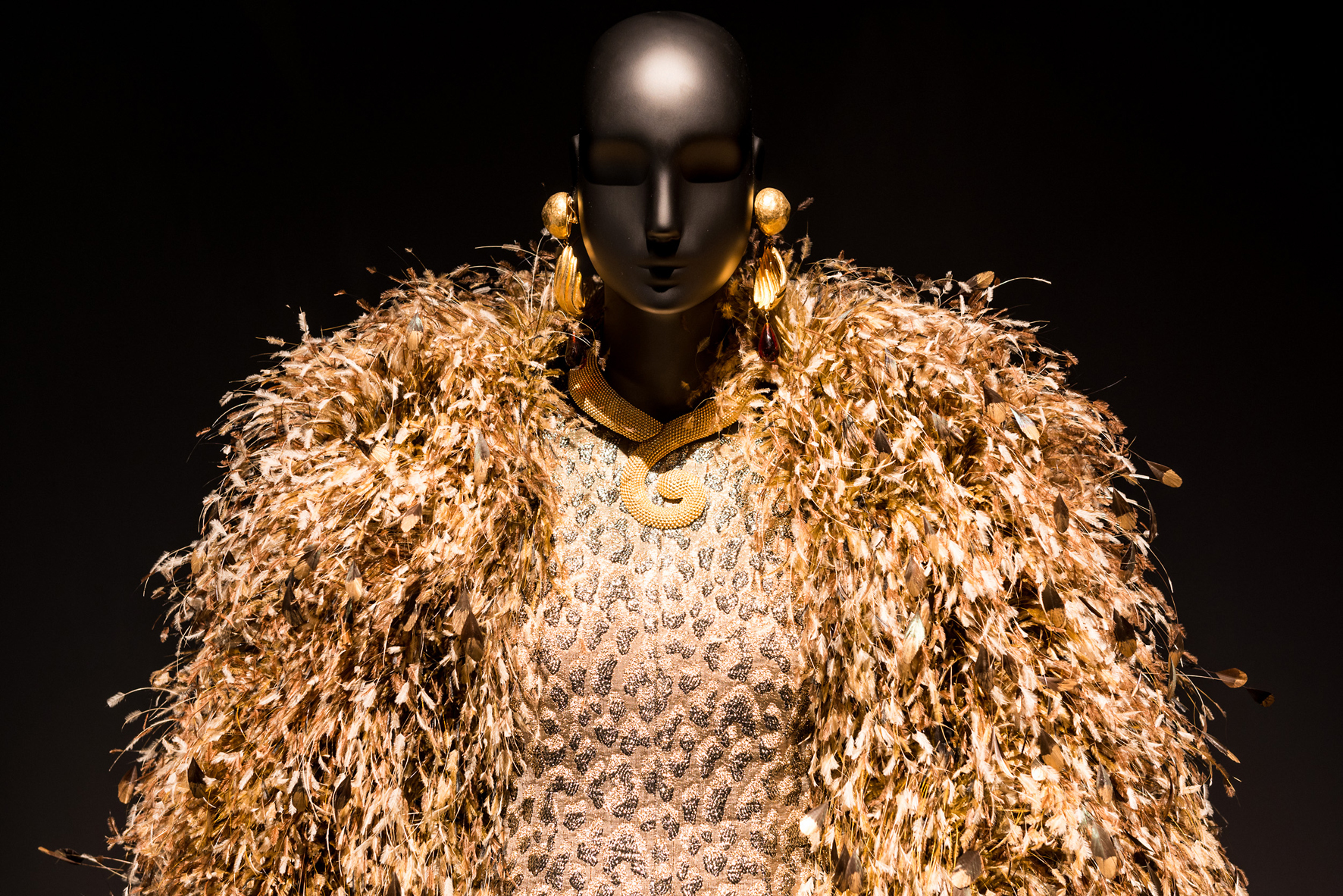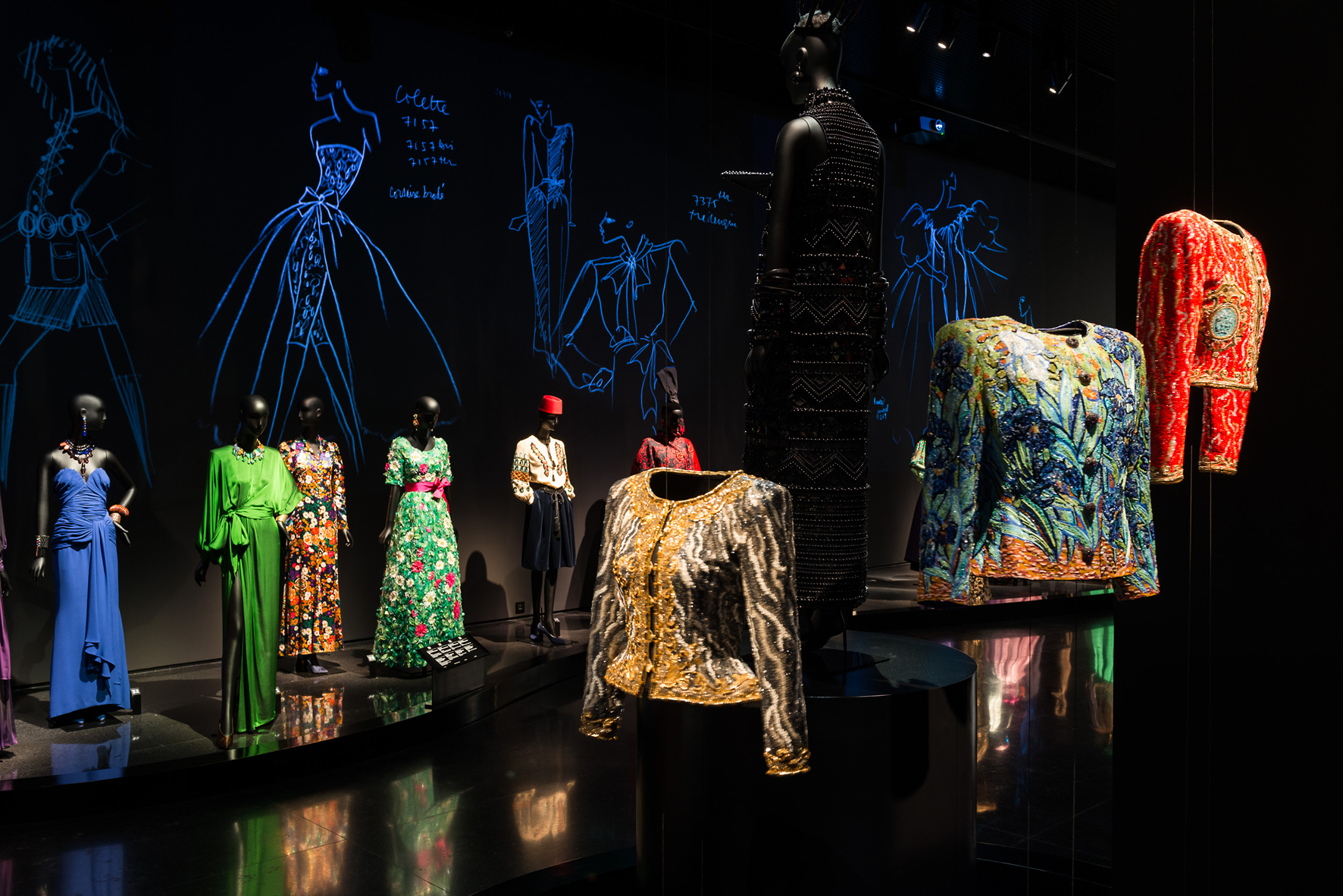Photo: Christian Schaulin © ERCO GmbH
Glamour at Yves Saint Laurent Museum
Kristina Raderschad
Photo: Christian Schaulin © ERCO GmbH
Location: Marrakesh, Morocco
Client: La Fondation Pierre Bergé – Yves Saint Laurent, Paris
Architecture: Studio KO
Scenography & Exhibition Design: Christophe Martin
Lighting Design: I.C.O.N. – Akari-Lisa Ishii
Lighting Techniques for Scenography: Sébastien Debant
ERCO Products: Optec
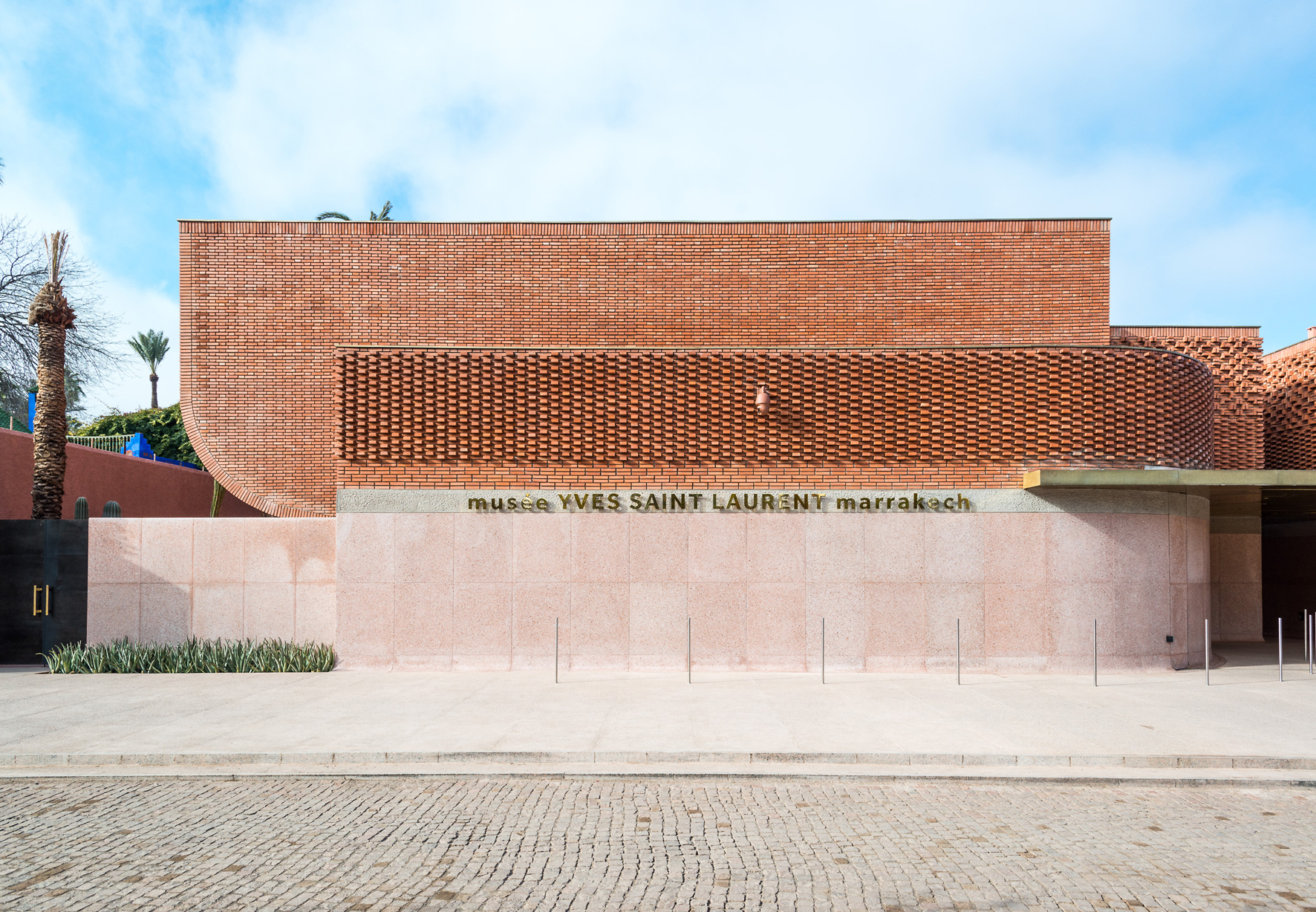
Photo: Christian Schaulin © ERCO GmbH
Outside, flickering heat below the North African sun illuminates the brick facade of the new museum building on Rue Yves Saint Laurent in a warm, pinkish glow. Marrakesh, located in southwestern Morocco, is famous for its houses painted in all possible tones of pink, red, and terracotta. The exterior of the long, low Yves Saint Laurent Museum pays homage to this traditional color palette with its terrazzo base and artistic brick facade, and also to the typically Arabian architectural tradition of shielding the interior from the road.
In the relief-like facade, Studio KO celebrates the complex plays of light and shadow beneath the southern sun. Inside is an exhibition space, a black box that accommodates the key works of the creative genius Yves Saint Laurent and a scenographic concept that celebrates the opulence and diversity of the haute couture designs of the fashion designer who passed away in 2008 and was one of the most influential couturiers of the 20th century. Fifty selected robes, skillfully illuminated, confront visitors in the pitch-black darkness — clothing mannequins that assume the appearance of protagonists on a theatre stage.
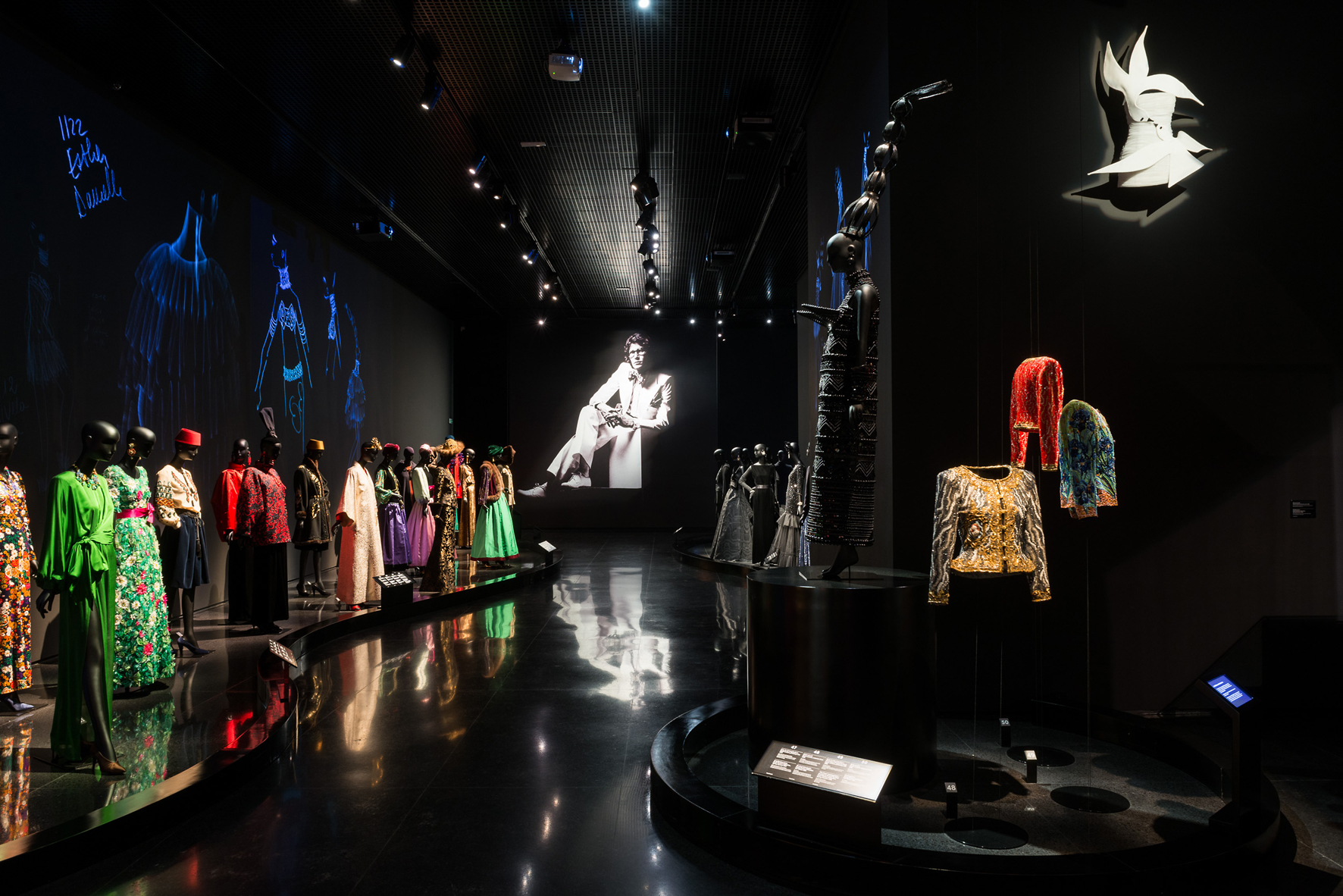
Photo: Christian Schaulin © ERCO GmbH
The French architect and scenographer Christophe Martin, who designed the exhibition of the new museum, was personally acquainted with Yves Saint Laurent. In 2005 Martin designed the first exhibition (dedicated to the famous first trouser suit for ladies, "le smoking," from 1967) as well as around 15 further exhibition projects commissioned by the fashion designer and Pierre Bergé. With the presentation in the Yves Saint Laurent Museum in Marrakesh, he provides an extensive insight into the life and work of the couturier who came to Morocco for the first time in 1966 with his Bergé, his life partner and business partner, and decided spontaneously to purchase a house in this city. The "red town" became his home away from his Parisian home — and his most important source of inspiration.
Martin purposefully intended not to present a classic retrospective. He sees the progress through the main exhibition space completely in black as a trip through the mind and spirit of the creative genius. He brings together selected iconographic models taken from four creative decades (1961-2002) along with jewelry and accessories to create an emotional, highly colored, and diverse display. For conservation reasons, different haute couture models from the Fondation Pierre Bergé collection of over 3,000 pieces are displayed at regular intervals. In this way the filigree beauties are not unnecessarily burdened in their exposure to the visitors and public at large. In terms of lighting and also due to conservational considerations, the decision was made for LED technology. Akari-Lisa Ishii, the lighting designer who transformed Martin's scenographic concept into LED lighting tools from ERCO, explains: "LEDs do not generate any heat or UV radiation, which is a very important aspect when illuminating sensitive and valuable textiles."
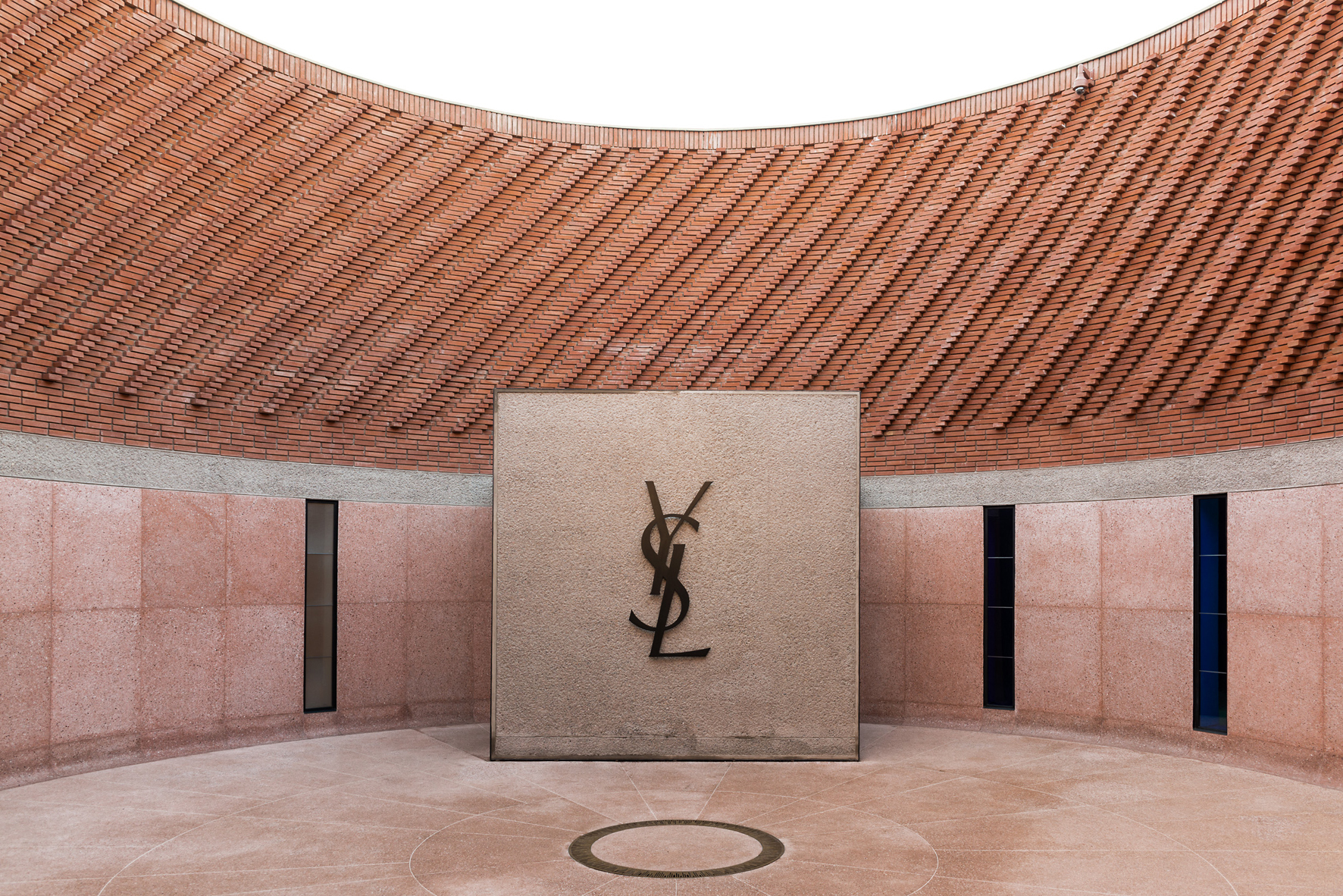
Photo: Christian Schaulin © ERCO GmbH
Visitors enter the museum from the road, through a slender corridor between brickwork walls, and the entrance courtyard flooded with sunlight and embellished with a six-foot YSL logo (after twilight, the logo is effectively displayed by two beamer projectors) that guides visitors towards the main exhibition space. At first glance visitors experience complete darkness. "This contrast between bright and dark, and between exterior and interior, was an essential factor in designing this space," explains Martin. "Detached from daylight and their surroundings, visitors find themselves here in a completely different universe — in the world of Yves Saint Laurent." An eye-catcher in the entrance, the famous "Robe Mondrian" dress from 1965 is accented with two Optec LED contour spotlights and appears to float towards visitors from the depths of darkness. The geometrical dress with its colourful design is akin to an exclamation mark within the black box.
The 50 models exhibited on mannequins are displayed in thematic groups that serve to illustrate the most important subjects of Saint Laurent's creative oeuvre. Textures, embroideries, flounces, and the draped textile plies of the robes are crisply and three-dimensionally enhanced thanks to accented lighting from the Optec contour spotlights — even those of the black gowns on black backgrounds. This method of lighting lends a sense of drama to the presentation and hints at Martin's attachment to the world of theatre. Following his architectural studies, he worked for over twelve years in close cooperation with the renowned American director, theatre producer, and video artist Robert Wilson on stage setting for the opera and theatre.
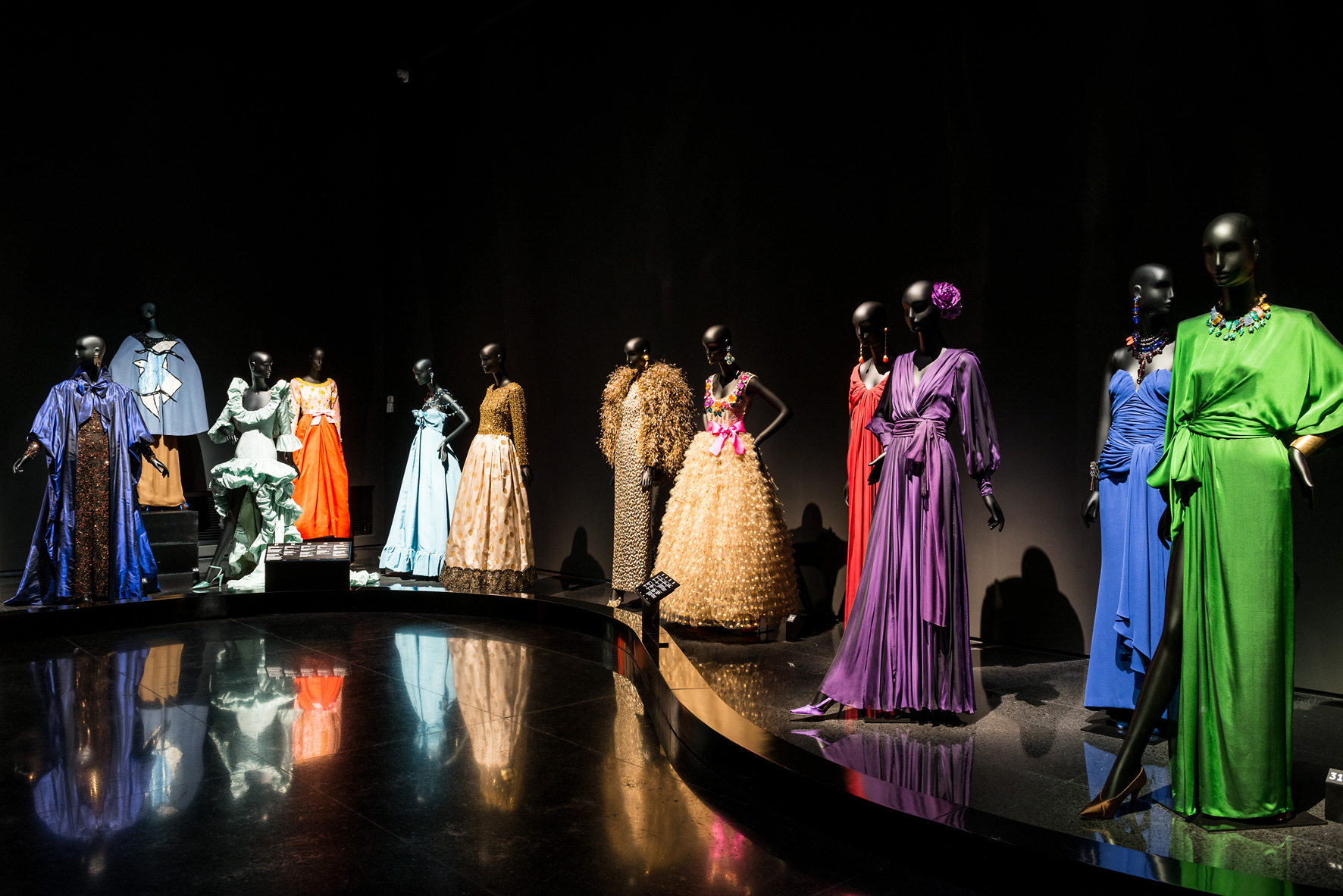
Photo: Christian Schaulin © ERCO GmbH
High visual comfort is exceedingly important, not just for visitors to operas and theatres but also for museum visitors. The highly precise ERCO LED lighting technology enables such high levels of visual comfort within this exhibition and also avoids any form of glare. "For me,” Martin says, “light is the most important building block in any scenography. This perfect illumination of individual exhibits within an exhibition is essential for the impact of the complete presentation."
